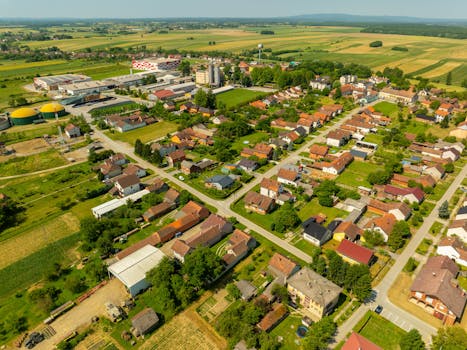
**
The government's ambitious pledge to build 1.5 million new homes by 2025 has faced significant scrutiny, with concerns raised over the feasibility of achieving this target given existing planning constraints. However, a recent Commons debate has highlighted the crucial role of planning reform in unlocking the potential for large-scale housebuilding and addressing the UK's housing crisis. The debate, which saw impassioned contributions from both sides of the House, underscored the need for streamlining the planning process and creating a more efficient system to meet the urgent demand for housing.
Streamlining Planning Permission: The Key to Delivering 1.5 Million Homes
The core argument presented by government ministers revolved around the need to significantly expedite the planning permission process. Currently, the system is widely criticized for being overly bureaucratic, time-consuming, and susceptible to delays caused by lengthy appeals and complex regulations. This protracted process drives up construction costs, making new homes unaffordable for many potential buyers and significantly impacting the overall housing supply.
Key Proposals for Planning Reform:
- Digitalization of the planning system: Moving applications and approvals online would drastically reduce processing times and improve transparency. This is a key element in improving efficiency and allowing for quicker approvals of housing developments, including both affordable housing and private homes.
- Reducing bureaucratic hurdles: Simplification of planning regulations and a reduction in the number of stages involved in the approval process could significantly reduce delays.
- Increased use of standard designs: Adopting pre-approved designs for certain types of housing developments could speed up the approval process and reduce costs.
- Empowering local authorities: Providing local councils with greater autonomy in their decision-making process, while adhering to national housing targets, could lead to more efficient and responsive planning. This also addresses concerns about top-down government control.
- Investment in planning infrastructure: Increased funding for local planning departments to manage the increased workload associated with a larger volume of applications is crucial.
The government maintains that these reforms are vital not only for delivering on the 1.5 million homes pledge, but also for stimulating economic growth, creating jobs in the construction sector, and addressing the wider housing crisis affecting the UK. This includes addressing the shortage of affordable homes and tackling regional disparities in housing availability.
Opposition Concerns and Alternative Approaches
While the government champions these reforms as necessary, the opposition has expressed concerns. Concerns were raised about:
- Impact on green spaces: A significant increase in housebuilding could lead to encroachment on green spaces and damage to the environment, a key aspect within the context of environmental regulations and sustainable development. Many argue for a focus on brownfield development before greenfield development.
- Affordable Housing provision: The opposition insists that greater emphasis needs to be placed on ensuring that a significant proportion of new homes are genuinely affordable for low and middle-income families. This requires government incentives and strict regulations to ensure developers meet affordable housing targets.
- Local community input: The opposition also cautioned against a system that might bypass or diminish the ability of local communities to have a voice in the planning process. Ensuring local engagement is crucial to building community support and avoiding widespread opposition.
These concerns have sparked debate regarding alternative approaches to addressing the housing shortage, such as:
- Increased density in urban areas: Focusing on higher-density housing developments in existing urban areas rather than sprawling outwards could minimize the impact on green spaces.
- Incentivizing brownfield development: Offering tax breaks and other incentives for developers to build on previously developed land could significantly increase housing supply without requiring expansion into greenfield sites.
- Promoting modular construction: The use of prefabricated and modular construction techniques could significantly speed up the building process.
The Path Forward: Balancing Speed and Sustainability in Housing Development
The debate surrounding the 1.5 million homes pledge highlights a fundamental challenge: finding a balance between the urgent need for new housing and the importance of sustainable development and community engagement. Simply accelerating the planning process without adequate consideration for environmental and social factors could lead to negative consequences.
The government must demonstrate a commitment to addressing these concerns and incorporating them into its planning reform agenda. This includes actively promoting sustainable building practices, establishing clear standards for affordable housing, and fostering meaningful engagement with local communities throughout the planning process.
The success of the 1.5 million homes pledge hinges on the effective implementation of well-considered planning reforms. A streamlined, transparent, and community-responsive planning system is not merely a means to an end, but a crucial element of building a sustainable and equitable housing system for the UK. Failure to address the issues raised in the Commons debate could undermine the government’s ambitious target and exacerbate the existing housing crisis. Future success will depend on a commitment to both speed and sustainability, striking a balance that satisfies both national housing needs and local community concerns. The upcoming months will be critical in determining whether the government can successfully navigate this delicate balance and deliver on its promise. The key related keywords are: planning permission, housing shortage, affordable housing, planning reform, UK housing crisis, housebuilding targets, green belt, brownfield development, modular construction, sustainable development, planning appeals, housing supply, new homes, government policy.




















